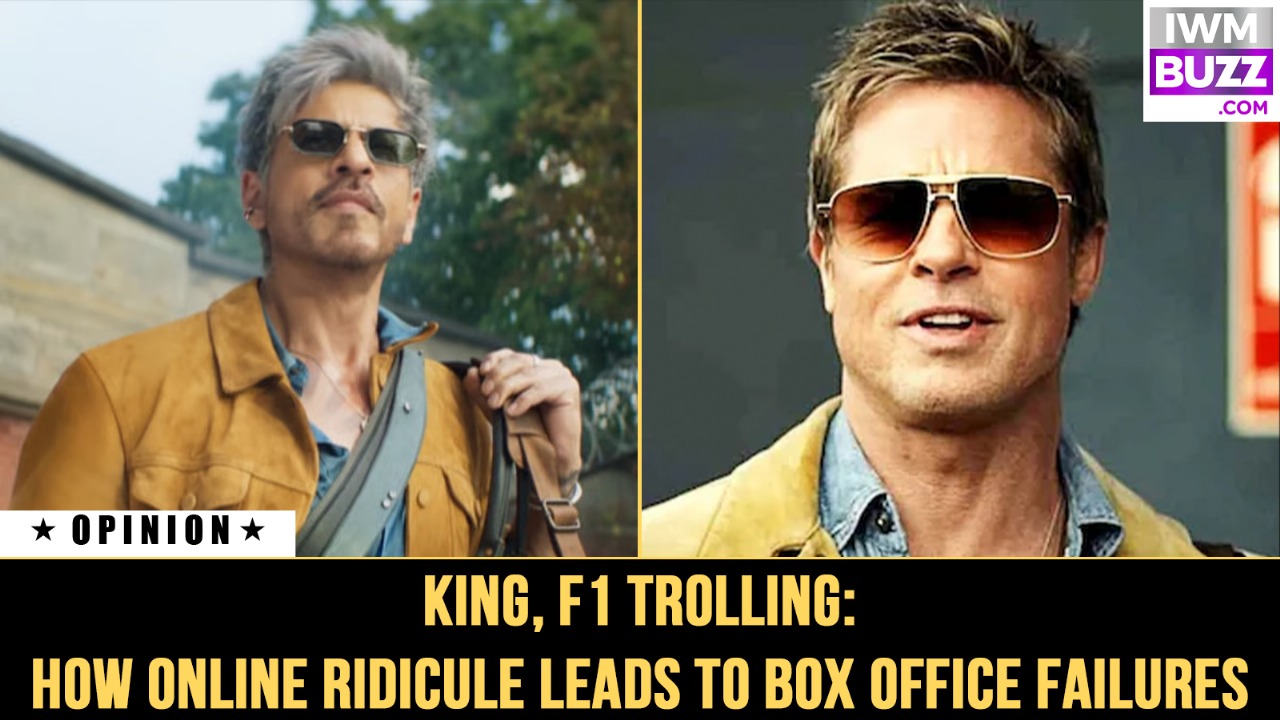The social media buzz is at its height. King’s trailer got all the love that it deserved from Shah Rukh Khan’s fans. The trailer was released on SRK’s 60th birthday. The trailer ushered with grit and gore. With a promising ensemble cast, King promised to epitomise the name for real. The zeal was there, but so were the trolls on mark, pushing the usual online ridicule.
It all began after internet users noticed similarities between SRK’s and Brad Pitt’s style in F1. Users claimed it had been copied. Memes started to roll.
The style in question, which recently sparked comparisons to Brad Pitt’s look in F1, actually has its origins in Indian cinema. Dating back to the 1990s, icons like Rajinikanth, Salman Khan, Ajay Devgn, and even Shah Rukh Khan himself had embraced similar trends well before the release of King’s title reveal video. Despite this, fans quickly noticed the resemblance to Brad Pitt and claimed it was copied. Siddharth Anand, the movie’s director, responded by saying that haters were spreading such rumours.
But the issue does not end here. You see, we all complain how the box office has been failing for Bollywood over the years. We all read the debates across newspapers, portals and social media. However, we do not consider this ‘online ridicule’ to be one of the ghastly and vicious reasons towards these failures. The content comes much later. The prejudices kill the very subcurrent. Today, youth are heavily influenced by social media. Given that, certain memes and ridicule slow down the craft’s momentum and enthusiasm.
This brings us to the failure of Solo: A Star Wars Story. The Oscar-winning director Ron Howard, speaking to Happy Sad Confused, stated that “aggressive trolling” on social media played an instrumental role in the movie’s failure. He said, “I wish it could have lived up to the box office expectations,” adding, “That’s disappointing. Why didn’t it? Maybe that’s the release [date], maybe it was too nostalgic, maybe pushback from the previous movie…some trolling, definitely. It was especially noticeable in several algorithms, such as Metacritic and Rotten Tomatoes. There was an inordinate push down on the ‘Want to see’ [score on Rotten Tomatoes] and on the fan voting. There was a series of 0s and 1s on there…I didn’t take it personally,” per Deadline.
If we call it criticism, it shall be unfair. Trollers often push venom in disguise. It is disrespectful not just to the star but to the entire team that works behind it, given any hierarchy. At times, it comes for the sake of trends, bias, and more. With that, those who are easily influenced by these memes and trolls eventually don’t show up—They scroll past trailers, skip the hype, and dismiss the movie before it even reaches theatres. The anticipation that should have been built through curiosity and engagement gets replaced by preemptive negativity. What starts off as innocuous banter soon snowballs into a collective indifference that affects ticket sales, word-of-mouth promotion, and even the conviction of the cast and crew.
The very social media platforms that are considered to heighten excitement end up stifling it, as trending ridicule often overshadows genuine discussions about the film’s merits.
Online ridicule becomes a silent saboteur. It shapes perceptions before a single frame is seen on the big screen. Movies like King or Solo: A Star Wars Story remind us that the digital age, while democratising opinion, can also vandalise anticipation and zeal. Dexterity, effort, and vision can only go so far; when the noise of memes and trolling floods out genuine appreciation, box office potential suffers.
Perhaps it’s time to rethink not just how films are made, but how they are judged—before they even hit the theatres.

